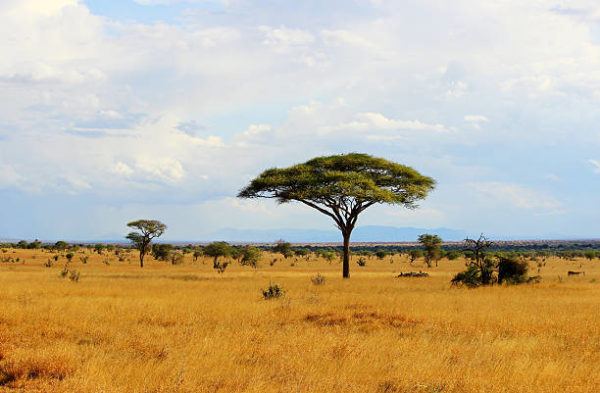For me, travel is always an adventure and simply being in a new place, seeing fresh faces and tasting strange foods is pretty thrilling in itself. That said, some trips are more adventurous than others and some even involve a few little risks along the way.
You, therefore, need to make sure to get the right insurance coverage for your trip as the standard, off the shelf travel insurance package may not cover some of the activities that you engage in.
Let’s take a quick little look at the quirks, concerns, and activities you need to be mindful of when choosing insurance.
Where Are You Going?
First up all about its Location, Location, Location. Do you know that some travel insurers won’t grant any insurance whatsoever for certain countries? I found this out for myself last year when I visited Pakistan and found that my usual, preferred insurer just would not cover the trip.
In my opinion, they were wrong to take this stance as Pakistan isn’t really all that dangerous but hey, it’s their business and if I don’t like it then I’m free to take my business elsewhere (oh the unrivaled joy of free-market capitalism..).
You, therefore, need to read the list of countries which the Insurance does cover.
Devices
As a travel blogger, I take my Mac Book Pro with me wherever I go. If it got stolen it would cost $1800 to replace and guess what? My travel insurance only covers any single device up to the value of $1000. I have therefore had to take out additional, specialized cover for it but it does cover damage and all other kinds of stuff which travel insurance may not.
If you do travel with devices, (ie a phone, a camera) always check that your policy covers their replacement value. You may also need some proof that you do own them – receipts are ideal but failing that be sure to note down the serial number and maybe even photograph yourself with the device.
Motorbiking
Motorbiking is notoriously risky and insurance companies know this. Most standard insurance packages won’t cover motorbike incidents and that includes even riding on the back of a motor taxi for a short trip through town.
This can be challenging as sometimes the motor-taxis are the only form of transport available. It may, therefore, be worth speaking to your Insurer to see if this can be included at an additional fee.
If you are embarking on a specialized motorbike trip, however, then you absolutely will need a specialized insurance package. My friend is a very experienced rider but last year spent some quality time in a Russian hospital after crashing in Siberia; because he had the right cover in place, he saved himself a hefty hospital bill.
Trekking
Trekking is one of the safest “adventure” activities that there is. People of all ages and fitness levels can and do it and there isn’t too much that can go wrong. Still, occasionally there are trips and falls which can lead to broken bones or rare cases of strokes, heart attacks or onset of illness’.
If this happens out in the jungle or up in the mountains, then it may mean an expensive AirVac (Air evacuation usually by Helicopter) and these things do not come cheap (there is a reason only Millionaires have Helicopters).
Therefore pay close attention. Trekking is usually covered but there may be a pre-requisite that you go out with a guide. Also, pay attention to altitude as some policies only cover you up to 3000 meters; 3000 meter is where altitude sickness begins to kick-in which can accelerate some medical conditions.
Climbing
Climbing is another one which most definitely falls into the “Specialist Risk” category. In addition to the altitude concern, there is the risk that you will plummet from a great height and smash your bones. Most climbing organizations will be able to recommend an Insurer who specializes in this kind of policies.
Some mountains and climbing expeditions are considered almost uninsurable. Take for example Nanga Parbat in Pakistan – it’s called the killer mountain with good reason!
Diving
These days, many a traveler decides to do a bit of snorkeling or even to learn to scuba dive. In Colombia or Bali for example, it’s cheap to get the certificate. In most cases, the diving school should have insurance that will indemnify you to an extent but in most cases that indemnity only covers their negligence.
What this means is that if you simply get sick under the water or something, then you will need to use your own cover. Therefore check that it does actually cover diving and on what exact terms before you get into the water.
Volunteering
You may have heard it said that before you can help anybody else, you need to help yourself and there is rather a lot of truth in this. Volunteering is an amazing way to help those in need, repay your karmic debts and accumulate some truly special life experiences. It can, however, also put you into some dangers which you need to be mindful of.
Obviously, volunteering with the British Red Cross in a war-zone carries very apparent dangers but there are less dramatic examples you may not have considered. For example, if you are working with animals and get mauled by a Tiger does your insurance cover this? It will usually come down to whether you told you insurer you would be sticking your hands in a Tigers face. Likewise, if you get tetanus whilst building a schoolhouse your insurer may well say it was your own fault.
This may seem harsh but insurance premiums are carefully calculated and charged based on the risks which the Insurer knows you will be taking and saying “But I was doing a good deed at the time” is not gonna persuade them to pay your medical bill.
Well, I know that’s all very sobering stuff but its need to know info and I do hope it has given you some food for thought. Stay safe guys and if you can’t stay safe, at least ensure your stay insured!


